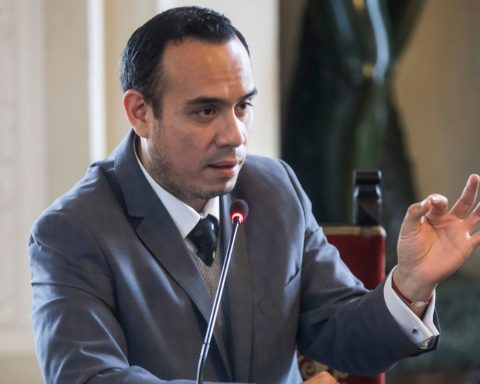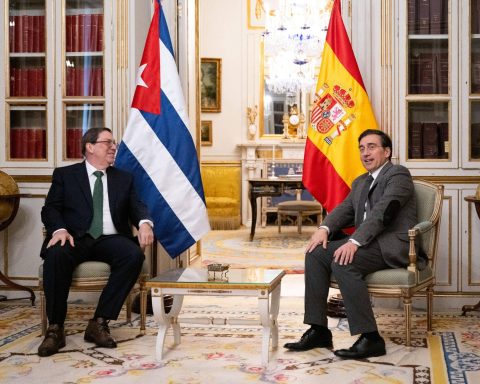Last Monday, February 21, the Constitutional Court made a historic decision in the country: to decriminalize voluntary termination of pregnancy until week 24.
(In context: Court approved the partial decriminalization of abortion in Colombia).
Since 2006, through ruling C-355, pregnant bodies in Colombia could access abortion legally only under three grounds:
1. When there is danger to the woman’s physical or mental health.
2. When there is a serious malformation of the fetus that makes its extrauterine life unfeasible.
3. In case of violent carnal access, transfer of fertilized ovum or non-consensual artificial insemination.
With the recent decision of the Constitutional Court, things changed and the country entered what feminism has called ‘the green wave’, which has spread in Latin America with the decriminalization in countries like Chile and Argentina. However, the country is the first in the region to legalize this practice until week 24.
The decision of the Court was given after a vote in which it was 5 votes in favor and 4 against. For the high court there are several factors that led to the final decision. One of them is the high mortality of pregnant people due to unsafe abortions.
THE CHANGES
The court established that the current context is very different from that of 2006. In this sense, a transformation is seen of the right to health as an autonomous fundamental right. In addition, because since 2006, documents with normative value have been issued in the international context that have advocated the decriminalization of abortion beyond the three grounds defined in Judgment C-355 of 2006, within the framework of International Human Rights Law. .
The judges, in this sense, prioritized an issue that had been little discussed 16 years ago: sexual and reproductive rights of women and violence towards them. Referring to the multiple sentences that have been resolved against gender violence.
However, another key factor in the decision was the protection of unborn life. The high court assured that in this case, the protection of the right to health implies removing regulatory obstacles that prevent access to the necessary services for women, girls and pregnant people to enjoy reproductive health.
(What’s more: Constitutional Court stopped, again, aerial spraying with glyphosator).
decriminalization of abortion
Cesar Melgarejo. Time
In this sense, unsafe abortions endangered the health, integrity and life of the pregnant population, according to the Court. Therefore, they considered that the crime, although intended to protect life in gestation, affected the right to health. From now on, more effective means will be taken into account to respect and guarantee the constitutional purpose of looking after pregnant lives. For example, through public politics.
Another important point of this decision is the autonomy of the pregnant person. The Court established that this type of decision is in the midst of the “exercise of freedoms intrinsically associated with human dignity, including freedom of conscience.”
For this reason, the high court considered that the possibility of procreating or not is a personal, individual and non-transferable matter in which the State cannot intervene.
“The decision to carry a pregnancy to term or not to do so is a matter that impacts whoever is gestating in a very personal way because it affects their life project; it is an individual matter, since it has physical and emotional consequences on its own existence and is non-transferable because the autonomy of the decision cannot be transferred to a third party, except in exceptional cases in which prior consent has been provided or there are solid reasons to infer it”, explained the Court.
In this way, the court considered that to penalize someone for abortion is to judge them when they decide to act according to their rights. moral judgments or intimate convictions affecting their freedom.
However, criminal law comes to play another role in the decision. For the Court, the crime, as stipulated, did not really protect life in gestation. In this sense, they considered that it was discriminatory to put the burden of the crime on women only for having reproductive and gestational capacity. In this way, it was unknown that the State should guarantee women a life free of violence.
(Keep reading: Keys to understand the new regulation of cannabis for industrial use).
Along with this, from now on it is considered that the criminalization of abortion violates the right to equality. The “Criminalization has a differential impact on the most vulnerable women, including those in an irregular migration situation, as evidenced by the information provided to the process.”, assured the high court.
In this sense, those who were penalized for performing an abortion outside of the three grounds are the ones who are most exposed to discriminatory factors that make them even more vulnerable.
Finally, the 24-week decision is one of the differentiating points with respect to the region. This implies that the crime of abortion was not completely eliminated. The Court chose a intermediate decision in which it took into account the moment in which a greater probability of extrauterine autonomous life is accredited, which is 6 months, the most advanced stage of embryonic development.

decriminalization of abortion
Cesar Melgarejo. Time
“The fundamental point of the distinction cannot be other than that in which it is possible to consider that the dependency of the life in formation of the pregnant person is broken”, explained the court.
WHAT IS COMING FOR THE COUNTRY
With the criminalization of abortion as it was contemplated, women who practiced it outside the three permitted grounds were sentenced to between 12 and 15 years in prison. With the recent glitch, this probability is removed. In this sense, the pregnant bodies will be able to interrupt the pregnancy in the first 24 weeks of gestation without any condition.
After this time, they will only be able to practice it who are under the three grounds established in 2006. However, the decision also includes that health systems must provide this service in a generalized way and without access barriers.
(Read: Covid: in one year, 63.7% of the Colombian population is immunized).
It is the duty of any health provider to practice this procedure and ensure that each institution has a professional trained to do iteven when there are other doctors who can appeal to your right to conscientious objection.
BRIEFCASE


















